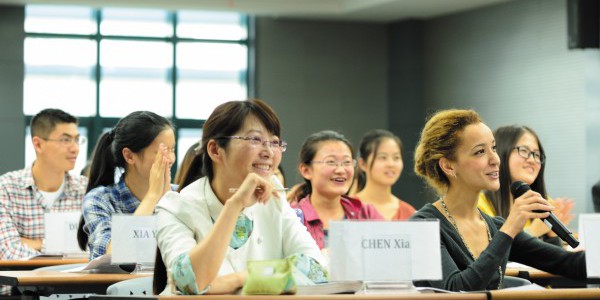
February 5, 2015, by Teaching at Nottingham
The road to Senior Fellowship of the HEA
Maris Farquharson: “Whilst completing our PhDs at Nottingham University Business School, UK in 2006/7 a friend suggested that, if we were to consider lecturing as a career, then getting the Post Graduate Certificate in Higher Education (PGCHE) was a must. We were subsequently exposed to a comprehensive overview by the PGCHE team leading a series of workshops. When I came to NUBS China (2008) I understood why we were being offered the opportunity to engage with the HEA and why we needed it.
“Prior to the PhD I had been working with and trying to build the self-esteem of adults. On the way I’d been exposed to ‘critical pedagogy.’ I mainly learned about this from priests and nuns who lived in some fairly remote places in Africa (and to a lesser extend the Caribbean). They were committed to a form of ‘liberation theology’ and were able to merge their own identities with the people with whom they worked. Their work with ‘the oppressed’ wasn’t smooth and sometimes it was life threatening. These guys dreamt in the language they worked which puts my efforts to learn Chinese to shame. I learned that sometimes it’s best to work to the agenda of those you are working with rather than imposing something alien. So if a community says they want a football pitch rather than a school – step back. Sometimes after the pitch has been built the effect is that the school gets built in double quick time, with more community involvement and people are more willing to use it (this is a simplification of a process of building trust). These experiences I offered in a report to the HEA which, combined with the PGCHE process (reflection, project and profile), completed requirements for Associate Fellowship (2010 ).
“Rachel Scudamore’s invitation to consider Senior Fellowship (2014) was timely because I had been working on a couple of projects with colleagues involving pedagogic approaches to teaching and learning and needed to create space for reflection of my approach. At this Senior Fellow level the Academy is looking for your contribution to supporting colleagues as well as your contribution to how students learn. Armed with a folder of information from the HEA and a briefing video from Rachel I decided to make time for introspection and reflection. The folder outlines ‘Descriptors’ which you identify in your own practice through your writing in a reflective piece (about 2-3000 words) and this is accompanied with two case studies (about 1,500-2000 words each) outlining how you teach, how students learn and how you have an impact on others’ teaching practice. Contributions cover investigations into learning and teaching for continuing professional development, administration work, managerial responsibilities, innovations, engagement with the wider community and approaches to your work etc. My two case studies outlined how I manage mentoring in large second year classes and how students from China translate the de-contextualized knowledge we offer them within this UK HEI. Both areas of research have thrown up some interesting, if not controversial findings. Students, for example in the entrepreneurship classes, are more impressed by knowledge and actions which will allow them to gain better grades rather than learning from entrepreneurs’ experiences about doing business. One of our conclusions to the translation research was that teachers don’t need to contextualize their offerings because translation of knowledge stimulates critical thinking resulting in students sifting and sorting information which they accept, don’t accept or remain ambivalent about. Some exam scripts throw up learning pointers for me as the teacher. In this case the students were informing me about ‘how things go’ with entrepreneurship within the local environment.
“Completed reflections are accompanied by two letters of support from referees whom I think should be known to you well because normally applications are supported by at least one Fellow. I had helped one senior member of staff support students through difficult situations and the other was one whom I mentored into his leadership position. I have tremendous respect for both. Submissions are on-line and are peer reviewed by the HEA and in my case rejected with an offer to re-write and re-submit (because reviewers felt that I had not clearly explained how I met the Descriptor in one area). Second attempt I was successful. The process was promoted and supported financially by Nottingham UK and NUBS China. This formal process allows for reflection and reflection is part of learning.
Good Luck.
Dr Maris Farquharson,
NUBS Ningbo.
No comments yet, fill out a comment to be the first

Leave a Reply